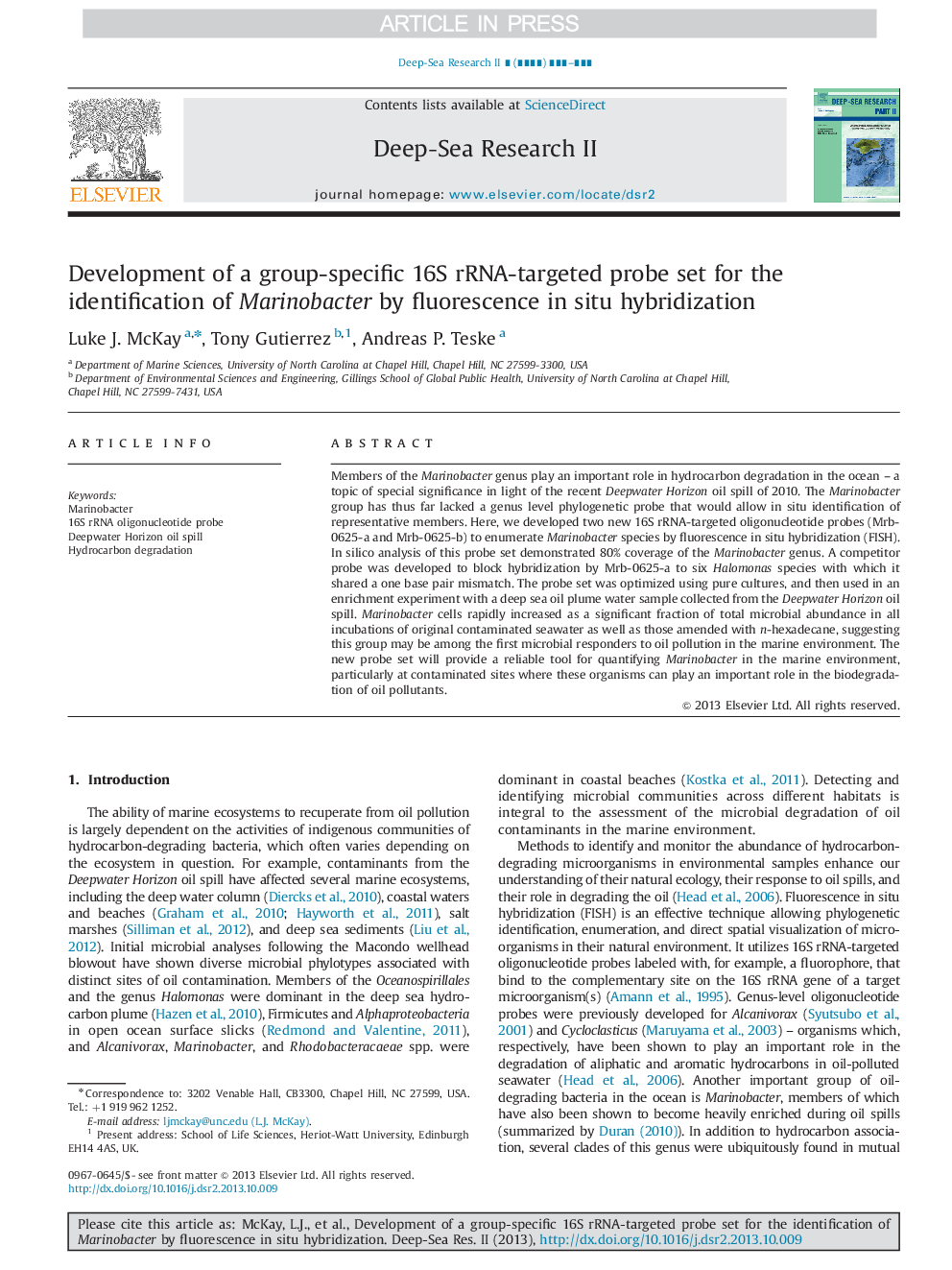| Article ID | Journal | Published Year | Pages | File Type |
|---|---|---|---|---|
| 6383979 | Deep Sea Research Part II: Topical Studies in Oceanography | 2016 | 8 Pages |
Abstract
Members of the Marinobacter genus play an important role in hydrocarbon degradation in the ocean - a topic of special significance in light of the recent Deepwater Horizon oil spill of 2010. The Marinobacter group has thus far lacked a genus level phylogenetic probe that would allow in situ identification of representative members. Here, we developed two new 16S rRNA-targeted oligonucleotide probes (Mrb-0625-a and Mrb-0625-b) to enumerate Marinobacter species by fluorescence in situ hybridization (FISH). In silico analysis of this probe set demonstrated 80% coverage of the Marinobacter genus. A competitor probe was developed to block hybridization by Mrb-0625-a to six Halomonas species with which it shared a one base pair mismatch. The probe set was optimized using pure cultures, and then used in an enrichment experiment with a deep sea oil plume water sample collected from the Deepwater Horizon oil spill. Marinobacter cells rapidly increased as a significant fraction of total microbial abundance in all incubations of original contaminated seawater as well as those amended with n-hexadecane, suggesting this group may be among the first microbial responders to oil pollution in the marine environment. The new probe set will provide a reliable tool for quantifying Marinobacter in the marine environment, particularly at contaminated sites where these organisms can play an important role in the biodegradation of oil pollutants.
Related Topics
Physical Sciences and Engineering
Earth and Planetary Sciences
Geology
Authors
Luke J. McKay, Tony Gutierrez, Andreas P. Teske,
